Help Steer SSA’s Future: Vote Today!
How can SSA best serve your professional needs and continue making advances in the field of seismology?
Keep that question in mind as you read the candidate statements below for our 2023 Board of Directors Election. Then be sure to cast your vote!
As the governing body for SSA, the Board of Directors helps set the broad policy and direction for the Society.
Voting in this election is a responsibility shared by every member of our community.
This is your opportunity to select the individuals who will steer the Society’s course for the next three years and set the course for years to come.
Together, by casting your vote in this important election, we advance earthquake science worldwide. Make your voice heard and vote today!
SSA members are invited to vote for members of the Board of Directors in the 2023 Election. Candidate statements are presented below, in alphabetical order by last name.
The election is open for voting until 5 p.m. PST Friday 6 January 2023. SSA strongly urges members to participate in the Society’s future by casting ballots. For assistance, contact election@seismosoc.org or phone 510-525-5474.
For a full list of the current Board of Directors, visit this page. The date next to the name indicates the end of their current term.
Candidate Statements (in alpha order):
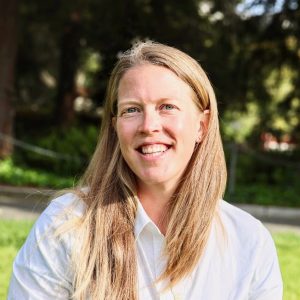 Annemarie Baltay: Research Geophysicist, U.S. Geological Survey
Annemarie Baltay: Research Geophysicist, U.S. Geological Survey
Principal fields: observational earthquake seismology, earthquake ground motion, earthquake source physics, seismic hazard
The Seismological Society of America is the leading organization bringing together earthquake scientists and engineers, both focused on modeling earthquake processes and seismic hazard, in order to mitigate earthquake risk. It is these connections that make SSA unique and that the Society nurtures. My professional growth has been strongly influenced by the exposure to these different approaches through the SSA, however there are still many advancements to be made at the intersection of earthquake science and engineering. If reelected, I would further encourage these collaborations through increased inclusion and diversity efforts, meeting design, and SSA’s goals. The SSA is also a leader in advocating for and encouraging early-career scientists through opportunities to present at the annual meetings, early-career mentorship programs, and scientific recognition through annual awards and student presentation awards. My first scientific talk was at the 2008 SSA Meeting, and I was immediately welcomed in by some of the great seismological minds; I was floored that these researchers were taking time to talk to me as a graduate student. If reelected, I will ensure early-career representatives are given the opportunity to sit on committees, and are able interact with awardees, such as the Joyner Lecturers. Additionally, I would continue to advocate for support for young families, to ensure balance between full participation as an SSA member, and family responsibilities. During my first term on the Board, SSA added support for young families and caregivers, including childcare arrangements for the (cancelled) 2020 meeting, and a grant to cover childcare costs for the 2021 virtual meeting. However, we need to codify that these family-friendly policies, towards which I would work if reelected. I would be honored to continue to serve the SSA on the Board of Directors as the Society continues to be a leading, welcoming and supportive scientific society.
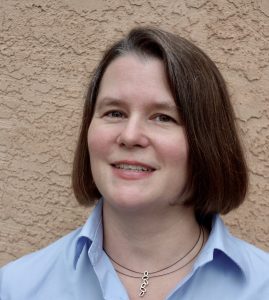 Susan Bilek: Professor, New Mexico Tech
Susan Bilek: Professor, New Mexico Tech
Principal fields: earthquake source physics, environmental seismology, subduction zone processes, tectonophysics
I have been proud to serve on the SSA Board during a period of huge challenges and major successes for our community. The SSA has weathered the global pandemic and resultant financial challenges to find ourselves in an even stronger position than before COVID upheavals. Although the pandemic altered so much of how we conduct our science and communicate with our colleagues, the SSA embraced available technology to conduct very successful online and hybrid Annual Meetings so that our community remained engaged. But we now need to decide how best to incorporate hybrid networking, meetings, and other communications into the future, and I look forward to developing strategies to optimize our communication and society connections. In addition, our efforts to diversify the scientific fields we support through journals and outreach activities have been very successful, including the launch of our new journal, The Seismic Record, that is already bringing new authors and readers into the SSA organization. This open access journal is an exciting development for the SSA, but the future of publishing includes challenges to balance our society’s needs for premier quality and service, accessibility, and cost. Finally, I am proud of the SSA ongoing efforts to diversify the membership of our society. Developing strategies to ensure that the SSA is widely accessible and welcoming to a broad community is the focus of our new Diversity, Equity, and Inclusion committee, of which I am a member. If elected to a second term, I would be honored to continue efforts towards broadening participation within our society.
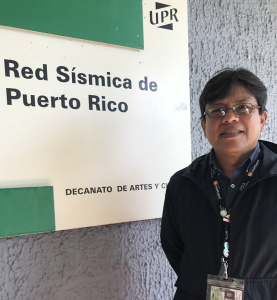 Victor A. Huerfano: Research Professor and PR Seismic Network Director
Victor A. Huerfano: Research Professor and PR Seismic Network Director
Principal fields: real time (RT) seismic, geodetic and tide gauge network operations (detections, processing and dissemination), network SOP’s (standard operational procedures), near field seismology, tsunami modeling, emergency management
Since the early years as a graduate student in the University of Puerto Rico, Mayaguez Campus, I have been involved in the difficult task of helping and supporting the seismic networks of the Caribbean and Latin American Region to improve their methods, particularly in data sharing and real time processing, a new topic for the 90’s and difficult to implement due to the limited technology and resources at that time. However, hard work was done laying the foundations for regional cooperation, which has been growing, to today have one of the most successful regional cooperation programs, thanks to the advice, work of many professionals, and the support from agencies, universities, etc. Parallel to that, I was carrying out research on earthquakes and tsunamis in Puerto Rico and the implementation of new methodologies in seismic monitoring, in particular, the procedures of seismic networks. After many years of work in the Puerto Rico Seismic Network, I have dedicated my recent efforts to making science reach the community, particularly in the delicate topics of emergency preparedness in earthquakes and tsunamis. The experience of living the effects of the devastating hurricanes of 2017, as well as the seismic event of 2020 in the southwest of Puerto Rico, and the covid-19 pandemic left me, not as a scientist, nor director of the Seismic Network, but as one more who experienced these adverse events, one more who had to leave his family to serve the community, has made me see the need to support communities to be resilient. It is therefore my intention to offer the SSA my experience as an intermediary between science and communities, to ensure that our people be prepared to face adverse natural events.
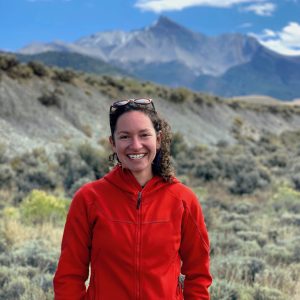 Nadine G. Reitman: Research Geologist, U.S. Geological Survey
Nadine G. Reitman: Research Geologist, U.S. Geological Survey
Principal fields: earthquake geology, tectonic geomorphology, paleoseismology, landscape evolution
I am honored to be nominated to serve on the SSA Board of Directors. When I think of SSA, what comes to mind is a strong community pushing the bounds of earthquake science for the benefit of society, as well as an organization dedicated to advancing the careers of young scientists. I joined SSA early in my journey to being an earthquake geologist, and throughout that time, SSA has supported me and other early career scientists by providing opportunities to share our work at the annual meetings and in its journals, funds to travel to meetings, and continued learning experiences through trainings and fieldtrips. I would be honored to give back to the community as SSA charts its future priorities. I was excited to see SSA take a leadership role in the DEI realm with the DEI strategic plan and offering bystander intervention and implicit bias trainings to its members. If elected, I will continue to push on DEI initiatives, as I have at the USGS by starting the USGS Hazards URGE pod and as an active member of DEI committees. I will focus on making the existing cornerstones of SSA accessible and welcoming to all people, keeping SSA relevant by communicating earthquake science to the public, and attracting, listening, and responding to diverse voices amongst earthquake scientists and engineers. These measures will ensure that SSA maintains its leadership role in earthquake science and makes that science accessible to the communities it serves in the US and around the world.
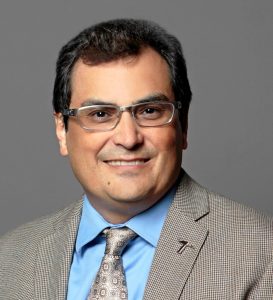 Aaron A. Velasco: Professor, University of Texas at El Paso
Aaron A. Velasco: Professor, University of Texas at El Paso
Principal fields: earthquake seismology
Since I graduated with a Ph.D. in seismology in 1993, I have witnessed dramatic changes in seismology, with the explosion of high-quality digital data being collected and shared openly in our community. With the efforts of many that formed the Incorporated Research Institutions for Seismology (IRIS), this open data access transformed our field and our culture of sharing data, allowing for fundamental discoveries of Earth processes, much of it published in SSA journals. I have also seen dramatic shifts in the gender balance in seismology, making our field stronger and more inclusive. At the same time, dramatic global and national events have changed us as a country, as a community, and as individuals, especially with the current COVID pandemic, the rescinding of Roe vs. Wade, mass killings of the most vulnerable, and police murdering minority citizens recorded in full view. Other conditions have not changed: the lack of minorities in our field, the way in which science engrains biases that work against inclusivity, and the racism that minorities must face daily. I strongly believe that scientists, and science organizations like SSA, should not remain silent to misinformation, ignorance, and hate, and instead, engage all stakeholders, from policy makers to the general public, with the goal of making society to be more just, equitable, inclusive, and better for all. It would an honor to serve SSA and leverage my experience as a researcher and educator in seismology, my experience as an advocate for diversity, equity, and inclusion (DEI), and my experience in leadership and management. SSA can actively promote innovative science all while having a positive impact on society. If elected to the board, I plan to continue to be a strong advocate for continuing to advance seismology through promoting DEI and supporting all SSA members.
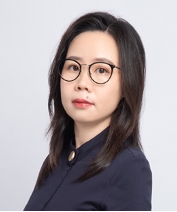 Lingling Ye: Associate Professor, Southern University of Science and Technology in Shenzhen, China
Lingling Ye: Associate Professor, Southern University of Science and Technology in Shenzhen, China
Principal fields: observational earthquake seismology, earthquake physics, seismotectonics, structure of the Earth’s deep interior
The Seismological Society of America (SSA) is the leading organization in advancing seismology and earthquake science worldwide. It has played a fundamental role in my career. Since I joined the first SSA annual meeting in San Diego in 2012, it has been my favorite time in Spring to attend the conference throughout my student and postdoc life in the US. The vibrant SSA community has inspired me to look deeper into earthquake physics and think more about public communications on seismic hazards, as well as provides great opportunities to collaborate with fellows sharing similar interests. Although I returned to China in 2018, I still feel strongly connected with SSA by attending the annual meetings online during the pandemic period and serving multiple roles in SSA recently, including the mentor for the early-career training workshop and the associate editor of the new open-access journal TSR. The community has been nourishing my professional growth over time. So, I feel honored to be considered to serve on the board of directors of this leading and supportive scientific society. If elected, I will: 1) focus on improving international collaboration on earthquake research and hazard mitigation; 2) continue to strengthen the early-career programs to support the next generation of earthquake scientists, and 3) increase the presence of underrepresented minorities, particularly scientists from China, to inspire future generations in China to pursue careers in earthquake seismology.
You must Log in to Vote.
Vote Now
